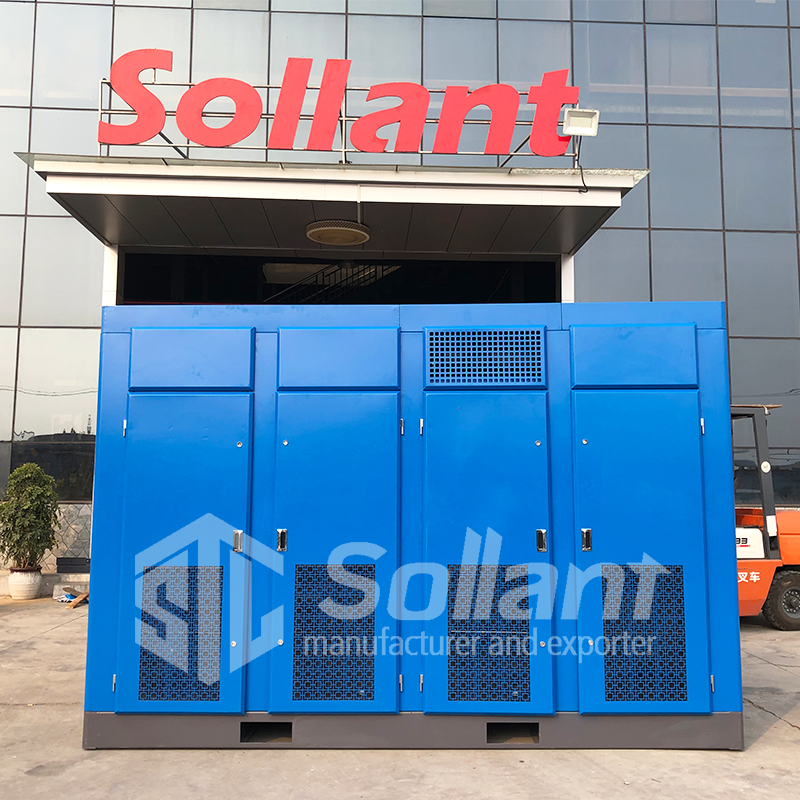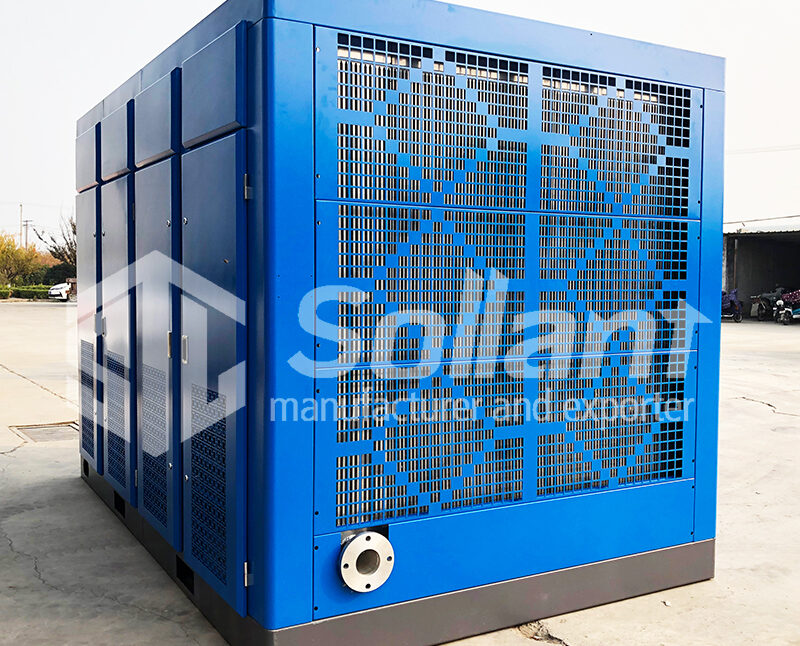Air compressors in the textile industry.During the production process in the textile industry, the fine nozzles of the textile jetting machine will blow compressed air onto the strands, creating a vortex, which will give the yarn shape, elasticity and elasticity, because the resulting cloth will be made into clothing and human skin Direct contact, therefore dry and oil-free pure compressed air for the textile industry to guarantee the quality of the finished cloth.

In the textile industry, air compressors are widely used in the following aspects:
Spinning and weaving process:
Air compressors are used to provide compressed air for spinning machines and spinning equipment. Compressed air is used in the spinning process to control the tension of the yarn, remove dust from the spinning machine, blow the yarn, etc. It is also used in pneumatic components and control systems in textile machinery.
Dyeing and finishing process:
In the textile dyeing and finishing process, air compressors are used to provide the required compressed air for dyeing machines, dryers and other dyeing and finishing equipment. Its application in dyeing and finishing machinery includes stirring dyeing agents, drying dyed products, cleaning equipment, etc.

Textile compression and vacuuming:
During the production of textiles, large quantities of fibres, fabric debris and dust are generated. Air compressors are used to provide compressed air for compression, vacuuming and cleaning of fibers and debris to keep the production environment clean.
Textile conveying and handling:
Compressors can be used to drive pneumatic conveying systems that transport textiles from one process to another. It can also be used for handling textiles, such as lifting and handling heavy textiles with pneumatic lifting equipment.
Textile Printing:
In the textile printing process, the air compressor is used to provide compressed air to control the printing head and nozzle in the printing machine. It helps achieve precise pattern and color printing on textiles.

So what are the requirements of the textile industry for air compressors?
-
Oil content
The oil particles in the compressed air will pollute the fabric and produce defective products, and will adhere to the outlet of the nozzle, affecting the jet force of the nozzle and the trajectory of the jet airflow, reducing the weft insertion effect and deteriorating the weft insertion. The adhesion of oil particles on the reed will increase the number of defective products, and the dispersion of oil particles in the air of the production workshop will pollute the environment and endanger the health of employees. Therefore, oil particles with a diameter greater than 0.01 μm should be filtered out, and the maximum oil content should not exceed 0.1 mg/m³.
-
Moisture content
The moisture content of the compressed air used for weft insertion of the air-jet loom should not be too high, otherwise the moisture will precipitate in the compressed air pipeline and condense into water droplets, which will cause dust to adhere to the pipe wall, increase the pressure loss along the pipeline, and Drops of water will be produced at the place, which will affect the spraying quality and cause corrosion of the reed and nozzle loom parts. Therefore, the pressure dew point of the compressed air should be set below 4°C.

-
Dust content
Due to the small meshing gap of the air compressor, dust and carbon powder in the air will accelerate the wear of the compressor and reduce the life of the screw. Impurities, dust and carbon powder above 1 μm should be removed, and the maximum dust concentration in the air should not exceed 1 mg/m³. Among the three main influencing factors, the oil content of the air is very important to the air compressor model selection and operating cost.
The brand “Sollant” specializes in the R&D, manufacturing, sales and after-sales of compressors, oil-free compressors and hosts, special gas compressors, various air compressors and post-processing equipment. Provide customers with high-quality, environmentally friendly and efficient air system solutions and fast and stable technical services. Sollant Corporation is customer-centric. Customer satisfaction is the purpose of our Sollant people.
Sollant Focus on Energy Saving.



